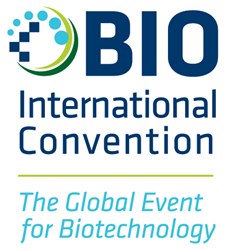Will You Be A BIO Change Agent in 2015?

By Rob Wright, Chief Editor, Life Science Leader
Follow Me On Twitter @RfwrightLSL

Last week, the Biotechnology Industry Organization (BIO) invited biotechnology, pharmaceutical, business development, life sciences and policy experts to submit topic proposals for sessions at the 2015 BIO International Convention. In my role as educational program planning committee co-chair for the convention, I have a vested interest in helping the largest most influential global event for biotech create an educational program that you want to attend. However, if you are a member of our life sciences community, you too have a responsibility for the success of BIO in 2015. The question is: Will you be an active or passive participant?
The Bystander Effect Applied To BIO
Social psychology research has shown an interesting paradox — the more bystanders who witness a person needing help, the less likely these bystanders are to get involved and lend aid. Conversely, the fewer the bystanders, the greater the likelihood a bystander/s will get involved and help. While the bystander effect is often associated with witnesses to a crime or an accident, it also manifests itself in other ways. Ever sit in a conference where a neighbor at your table has lots of wisdom and opinions which contradict the “expert” presenter, but only voices these passively to you and avoids actively engaging the speaker with a question? I have. In my opinion, this is the bystander effect rearing its head in a conference forum. The bigger the room, the larger the number of attendees, the greater the bystander conference effect there will be. Perhaps it’s cognitive or behavioral uncertainty that prevent people from actively engaging in these situations, or maybe it’s the belief that because so many people attend and are involved in BIO that there is a wide diffusion of responsibility. Either way, the result is many people choosing not to participate in these conversations. The assumption is that someone else will help. Someone else will ask a question. Don't make that assumption. Instead of being the parent who offers the little league coach advice on how to do their job better, I challenge you to get into the BIO education game and share your insights and submit a proposal. Be provocative. Be edgy. All ideas are welcome.
Making A Difference At BIO
Plenty of people have uttered the words, “What difference can I make, I am only one person?” But there are a number of examples of truly inspirational leaders who have proven — when hopes and dreams outweigh fears — that one person can make a difference. Imagine if Nelson Mandela had left the job of apartheid to someone else. What if Mother Teresa assumed it wasn't her job to care for the sick and destitute? What if Rosa Parks, instead of taking a stand by staying seated on that bus in Montgomery, AL, felt it was not worth the aggravation, opting not to “rock the boat?” Would someone else have stepped up to make a difference? I wonder.
Don't let BIO’s size keep you on the sidelines as a bystander. Don't assume someone else will step up or has better wisdom to share. Instead, I challenge you to submit a session proposal by 10/2/2014 and become a change agent at BIO 2015 — and not just a passive participant. All submissions received are peer-reviewed. My co- chair, Richard Bagger, SVP corporate affairs and strategic market access at Celgene, look forward to reviewing your submissions. We want to make BIO 2015 (June 15 – 18 at the Pennsylvania Convention Center in Philadelphia, PA) better, but we need your help to do so.
